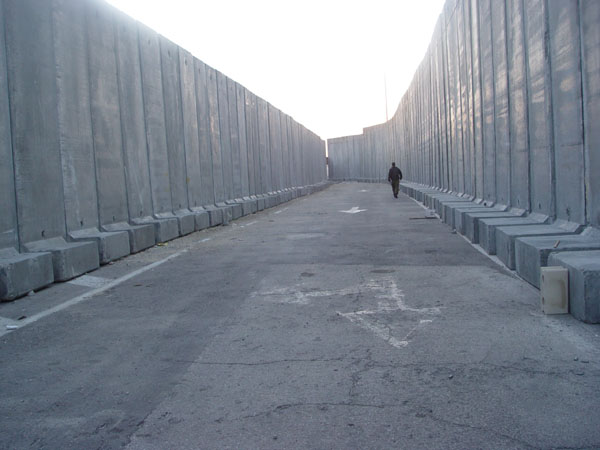
Immanence is what remains in its place, even when what had once occupied that place has departed. It is the remnant of a transcendence. Yet, to be cautious, we must make this relation clear. In a movement of transcendence, that which is in-itself passes beyond itself, steps outside of itself, leaves itself vacated. And yet this outside-itself of the thing does not split it into two different entities, an empty container and an uncontained object, or rather, these two resultant elements are really the same thing, a thing whose paradoxical status makes a unified perspective upon it impossible, thereby necessitating the parallax structure.
In other words, the product of the movement of transcendence is properly a split, a two-fold articulation of things such that it cannot be reconciled. The thing outside-itself is not distinct from the empty itself, the empty place; it is rather the empty place seen from outside, in its opacity - the place is not seen as empty, but its contents cannot be seen; the thing for-us obscures what would be or might be in-itself. Hence, the thing outside-itself is the same as the outside of itself, the place as seen without reference to its occupation. The fact is that the vacuity produced by the moment of transcendence is indifferent to the presence or absence of an occupant or content; it is the vacuity or void of an interior whose interiority is already a primary datum, as that which cannot be seen or cannot be known. This is not simply a negative datum, but is expressed in the positive condition of the thing outside-itself or for us.
The movement of transcendence hence produces the thing as outside-itself along with a collateral negativity that is expressed in the positive, constituted thing. This negativity or 'withdrawal' of the interior is coextensive with the constitution of the thing for-us, or outside itself, and hence the giving of the given cannot itself be given, but is the necessarily opaque interiority that has been left behind, 'transcended'. The question of immanence is, then, whether there is a sense of the interior or the vacant place that does not make reference to the movement that produces it, that does not become a supposition of transcendence, and that is more than the unknowability of the interior from the purview of the outside.
To clarify: the thing outside-itself is constituted in the movement of departing or imparting whereby it leaves the very constituting movement obscured. The movement of constitution is also the movement of rendering this very movement unknowable, in rendering the point of departure unknowable. So the constituting or giving or the thing outside-itself, the movement of transcendence, is itself rendered transcendent in this movement. And yet the constituting movement also, simultaneously, constitutes or gives the interiority of the point of departure, it gives the in-itself as unknowable. The opacity that is thereby generated is thus that of both the movement of transcendence or giving, and of the immanence of the in-itself as such, as interior, given as such.
The point here is that the movement of transcendence essentially distinguishes itself from immanence, in its very giving of the thing outside-itself, its relation to this thing, whereas immanence cannot distinguish itself from this movement, it is constituted as such in this very movement, and is indifferent to any relation with the thing outside-itself aside from being given as without-relation to this thing. (This is close to Michel Henry's notion of immanence.)
Our question now is, in what sense can the thing outside-itself be reconciled with the immanence of itself, without reference to the movement of transcendence that relates them across a non-relation? Is there a sense of this immanence itself, without the givenness of its being as-such? Can you go home again?
The paradox here is that the immanence of the thing itself, the remaining-in of the interiority irrespective of a content, cannot simply be reduced to immanence 'as such', constituted as such in the movement of transcendence. But it can no more be immanence itself, devoid of transcendental determination, as purely given-without-givenness, foreclosed and indifferent to the movement of transcendence. (This is close to Francois Laurelle's notion of immanence.) The reason for this is that immanence already cannot be itself, as it is what remains-in itself and remains in-itself. It is the very impossibility of determining a content - or lack thereof - of this ipseity.
The itself must remain vacant and destitute, not even lacking a content, but indifferent to and independent of any content or lack thereof. There is no immanence 'itself' because immanence is the itself deprived of what is itself. It is a remaining-in or interiority without being-in; it is not given-without-givenness or there-without-disclosure, but is strictly indifferent even to a being-given or being-there. It is this impossibility of reconciling ipseity that immanence names. And the question of returning, or repetition, is not one of rendering the immanence perfectly reverisible or indiscernible with the movement of transcendence, but rather, of passing from a content toward which one's place is purely indifferent, to becoming the vacuous interiority of the place that undermines its ipseity, becoming the not-itself of what one is, in being-therein. Becoming the in-and-not-itself of the place and position one is given and to which one is given.



No comments:
Post a Comment